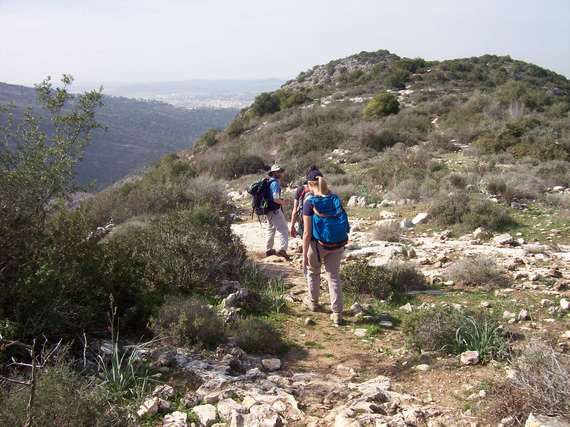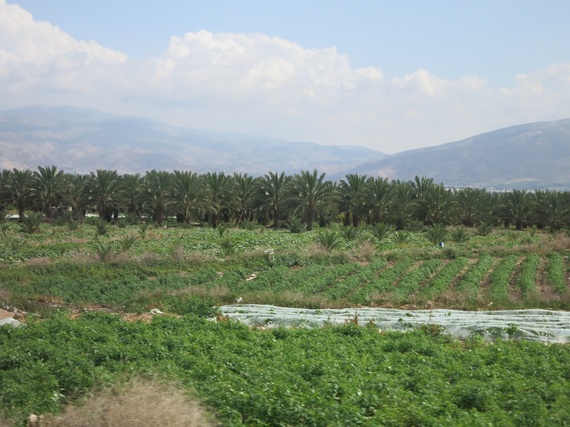Let me share with you something amazing: the drops of the U.S. and other stock markets have been occurring at the end of the Sabbatical year. In the Jewish calendar, the year ends in September, and the Sabbatical year (in Hebrew 'Shmita') is a once in seven year rest observed by some Jews in Israel based on teachings of the Bible. This stock market fall-Sabbatical year linkage occurred this year, when the global stock market dropped significantly, losing over three trillion dollars worth of wealth.
In Rabbi Yedidya Julian Sinclair's blog post "Shmita and the Stock Market"he cites the remarkable fact noted by the Christian author Jonathan Cahan, that "the final day of both of the last two Shmita years saw two of the three largest falls in history (measured in points not in per cent) of the US stock market...
What seems to be happening is that some of the wealth we thought we are generating by working in the seventh year and constantly growing is getting erased at the end of the Sabbatical year. The rhythm of working for six years and resting in the seventh, writes Rabbi Sinclair:
is obstinately embedded in human economic life. We are built to strive and struggle, to invest and innovate, to conceive and create for periods of around six years. During that time we are apt to get energized, excited and sometimes completely carried away by the whole business. The seventh year is meant to be a reset, a return to the real values that underpin our increasingly frantic efforts. If the reset is not expected, (and it usually isn't), experience shows that it comes upon us anyway, as a nasty surprise.
The Sabbatical year can be such a positive force. There is such a tremendous potential for a society-wide-resting to take place, in order for us to connect to the inner riches of our souls. To connect with each other, to families, communities, to the nation as a whole. Observance of the Sabbatical year can help reorient our way of thinking and worldview and thereby address one of the spiritual roots of the environmental crisis-- constantly doing without taking sufficient time for reflection on our doing. At a societal level, Rabbi Michael Lerner explains in an article in Torah of the Earth how it may well be possible for an industrial technological society to observe the Sabbatical year.
The first chapter of Genesis teaches that the Creator embedded within creation a cycle of seven: six units of work, one of rest. The Bible teaches that this is supposed to take place each week and every seven years. Rabbi Abraham Kook taught in his Introduction to the Sabbath of the Land that "creation was not complete until rest was made to complement and balance creative activity."
Yet modern society is focused on growth, which it has maintained steadily for decades in some countries. China's GDP has increased every year since 1976 (as measured in Chinese yuan and purchasing power parity). The Israeli economy has been growing every year since 2004 including during the Sabbatical years of 2007-8 and 2014-5. This year in Israel the Sabbatical year is primarily observed in the agricultural sector by some observant Jewish farmers. About 98 percent of Jewish Israelis work in non-agricultural jobs, and continue to work since the Sabbatical year has been interpreted over the millennia as only applying to farmers.
When work continues uninterrupted by conscious rest, the work can become damaging to the doer and the surroundings. Edward Abbey said that "growth for the sake of growth is the ideology of the cancer cell." If we go on working without taking a major break to rest, we run the risk of becoming human doings instead of human beings.
The Islamic Declaration on Climate Change, released in Istanbul last month, links the growth mentality to the ecological crisis. It states, "We recognize the corruption (fasād) that humans have caused on the Earth due to our relentless pursuit of economic growth and consumption. Its consequences have been - Global climate change... Soil erosion, deforestation and desertification." This was presciently foreseen 45 years ago by Saint John Paul II, who said "the most astonishing economic growth, unless they are accompanied by authentic social and moral progress, will definitely turn against man." (Address to FAO, 1970)
Dr. Herman Daly, the father of Ecological Economics, states that the economy cannot grow infinitely within the finite system of planet Earth. He saw growth as a temporary process required to reach a sufficient level of wealth, which would thereafter be maintained more or less in a steady state. Yet most modern neoclassical economists hold that growth should always continue, and this is the mainstream view of the global economic system. That is why when the stock markets crash, it is such a shock to the public.
Pope Francis, in his Encyclical Laudato Si: Care for Our Common Home, calls on humanity to "finally leave behind the modern myth of unlimited material progress. A fragile world, entrusted by God to human care, challenges us to devise intelligent ways of directing, developing and limiting our power." (paragraph 78) He says that we are lacking "a culture and spirituality genuinely capable of setting limits and teaching clear-minded self-restraint." (paragraph 105)
Let us not underestimate what religion has to offer to address the ecological crisis. Spiritual awareness can enable a person, a society and all of humanity to reflect on growth and assess when it is healthy and when it is unhealthy. This is what the Sabbatical year is supposed to enable us to do. Human beings have that ability; a cancer cell does not. Growth can be healthy, or it can become "a growth" that ultimately eats up the host that is supporting it.
Our growth needs to be intentional, and done in a way that promotes values of peace, justice, and care. If religion can live up to its potential, it can address the ecological crisis from the roots on up. As Pope Francis said in his groundbreaking Encyclical (paragraph 161), "the effects of the present imbalance can only be reduced by our decisive action, here and now." We as individuals and as a collective need to decide very soon what future we seek for ourselves and all species.


